Beaver activists claim they are 'doing God's work'
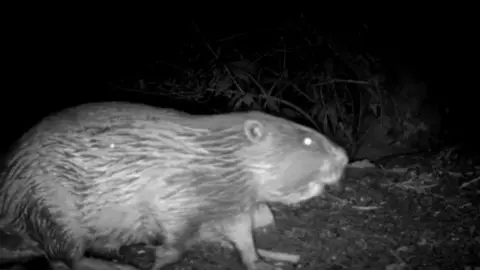 Contributor
ContributorUnder cover of darkness, a nocturnal creature emerges from a crate and takes its first tentative steps into a new life in the wild.
"It is just essentially God's work. We're undoing the damage of hundreds of years ago and bringing back these extraordinary animals," claimed Ben, who spoke to the BBC on the condition of anonymity.
He is part of an underground network where members risk arrest, jail and hefty fines by carrying out covert and unlicensed releases of beavers.
It is an offence to release beavers into the wild without a licence and a spokeswoman for the National Farmers Union (NFU) said it was "irresponsible" and "really worrying".
There is now a legal route in the UK for the species to be reintroduced. Despite this and the risks of acting without licences, activists whose names have been changed were unrepentant and said they were taking action themselves because the legal option was "too bureaucratic".
"It feels like they're back in their proper place," Ben said.
Like the nocturnal creatures at the heart of their cause, the group he belongs to operates under the cover of darkness.
He said secrecy was key in everything from where other parts of the network got the animals - "we really don't need to know" - to the clandestine releases.
"You don't want to be caught with a box of beavers in the boot so you have to be quite quick," Ben said.
"You open the door, do it and drive away. They are instantly much happier in the water."
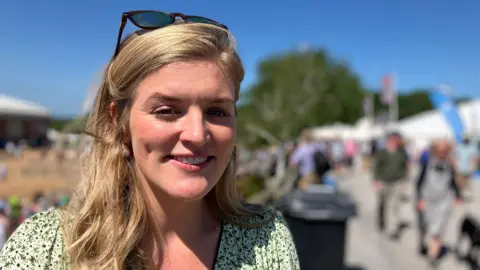
However, the NFU said concerns over unlicensed releases included flooding, tree-gnawing and damage to land and crops.
NFU countryside advisor Poppy Sherborne said illegal releases were "irresponsible".
"They are really worrying because there has been no process put in place to check that release should be happening," she said.
"There's no support for farmers who could be impacted by that release if it's not happened in the right way."
She said the "rigorous" legal process should be followed.
When challenged over his actions, Ben said: "I'm unfamiliar with species of animals or species of wildlife, plants or animal that would be badly affected by the presence of beavers... they can reduce risk of flooding, mitigate the damage that a drought can bring. They can help to clean up water.
"What's not to like about this?"
Det Insp Mark Harrison, of the National Wildlife Crime Unit, which supports wildlife crime enforcement across the UK, said he loved nature and visiting rewilding locations but "it has to be done properly".
He said although there had been prosecutions for illegal species release in England, none had applied to beavers.
"The reason for that is because we've got no evidence," he said, describing the covert nature of releases and the fact beavers could be on site for long periods before they were spotted.
"You commit an offence so there could be consequences for you but you've also got to think about the impact on the animal so there could be welfare issues," he said.
"You could be reintroducing other diseases and parasites."
Marie, who is also part of the network, said being part of beaver releases was "one of the most amazing things I've ever witnessed".
Asked about the difficulties beavers could cause for farmers and landowners, she added: "I can understand why it is scary to some people... but there are so many ways that you can maintain control.
"If the landowner wants to protect particular trees, you can make sure that beavers don't fell an individual tree.
"You can control the water level even and I think beavers can actually bring benefits to farmland too."
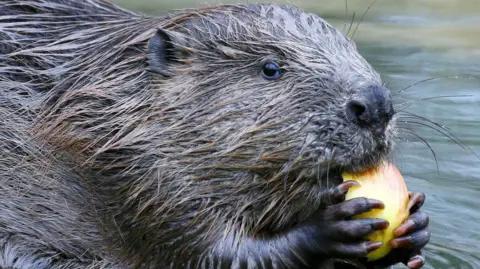 PA Media
PA MediaBeavers were hunted to extinction in Britain 400 years ago for their meat, furry water-resistant pelts and a substance they secrete called castoreum - used in food, medicine and perfume.
For a long time, the Wildlife and Countryside Act 1981 regulated the release of "non-native" species, including beavers.
It allowed for licensed releases of beavers - imported from countries including Germany and Norway - into enclosures, of which there are 52 in England, according to the Department for Environment, Food & Rural Affairs (Defra).
But in 2013, video evidence emerged of a wild beaver with young on the River Otter, near Ottery St Mary, Devon.
After public pressure, the population became central to the River Otter Beaver Trial, which resulted in the 15 families being given licensed status.
Their descendants are among upwards of 600 beavers currently roaming free in England, according to Natural England; the majority through unlicensed releases or escapes.
The Beaver Trust's figure is higher; its "educated estimate" is that there are 1,000 wild beavers in England, mostly in the South West, with a total of 3,500 in England, Wales and Scotland.
In 2022, Eurasian beavers were recognised as a protected species in England, making it illegal to capture, kill, injure or disturb them.
In February 2025, a licensing scheme overseen by Natural England was introduced - without which it is still illegal to introduce or move beavers.
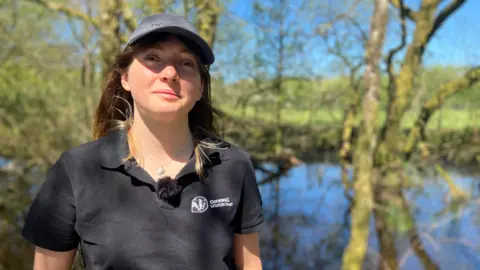
Natural England is now considering about 50 expressions of interest.
Applicants will have to demonstrate clear benefits and where risks can be "avoided, mitigated or managed".
Cornwall Wildlife Trust applied to release beavers on a site near Helman Tor as part of a planned £800,000 10-year project.
During the two-year preparation of its application, a pair turned up at the site in what the trust believes was an unlicensed release.
"We have seen this site be absolutely transformed," beaver officer Lauren Jasper said.
"They've created a couple of dams. In doing so, this is holding back water and it's slowing the flow and it's created this amazing wetland area that's now brimming with wildlife."
The trust said its project work would include providing advice on learning to co-exist with the species again and added it did not support unlicensed release.
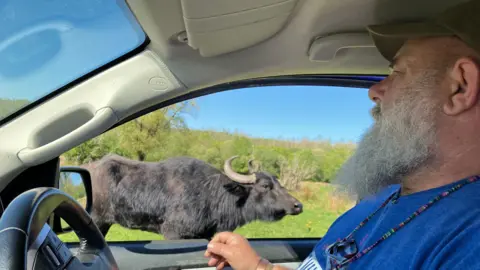
Other rewilding efforts - both legal and illegal - causing debate include sea eagles, lynx, wolves, elk, and even some species of butterfly, while sightings of wild boar on Dartmoor sparked division.
Devon farmer and conservationist Derek Gow said he believed they had been released by illegal rewilders.
"I wouldn't imagine very many people are involved in doing this but the effect they've had, especially when it comes to beavers, has been profound," he said.
Mr Gow, who is working to rewild 150 acres of his own land near Launceston, said he had also legally reintroduced species including beavers, dormice, 25,000 water voles and glow-worms.
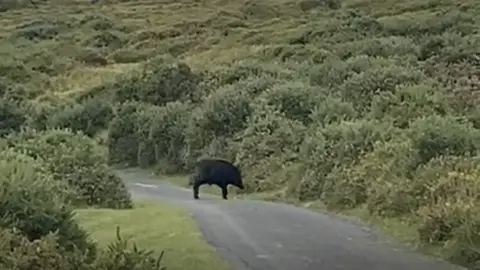 Iain Russell
Iain RussellHe said biodiversity in England was at "rock bottom" and the licensing system was fraught with "complex and medieval rules" and an obligation to "pay for the next 10 years".
"What they are trying to do is shut the stable door long after the horse, the horse's grandmother and the horses' relatives have crossed the mountain range to emerge free on the other side," he said.
Defra said unlicensed releases could "reduce the likelihood of success of beaver reintroductions".
It said detailed and comprehensive licensing applications were important to "achieve a measured pace of reintroduction and prioritise areas where beavers can thrive without causing significant conflicts with people, agriculture and infrastructure".
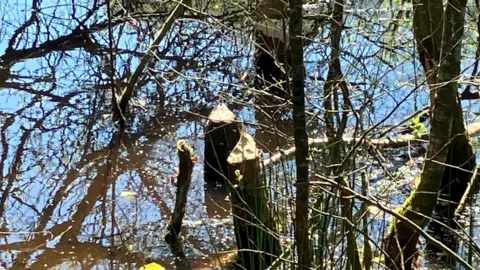
But rewilder Ben, who said the licensing process was a step in the right direction, said he thought there "may well be a requirement" to continue releasing the anmals illegally.
"We are in a national emergency of climate and biodiversity loss," he said, adding rewilding beavers was being treated as "yet another bureaucratic exercise".
"It's not good enough for beavers, and it's not good enough for the people of this country," he said.
Det Insp Harrison said "coexistence" was needed and a lot of wildlife crime issues were "because we don't know how to live with these animals anymore".
He said: "It brings about a lot of conflict and usually it's human-human conflict because of an animal."
Follow BBC Cornwall on X, Facebook and Instagram. Follow BBC Devon on X, Facebook and Instagram. Send your story ideas to [email protected].

Sign up for our Future Earth newsletter to keep up with the latest climate and environment stories with the BBC's Justin Rowlatt. Outside the UK? Sign up to our international newsletter here.
